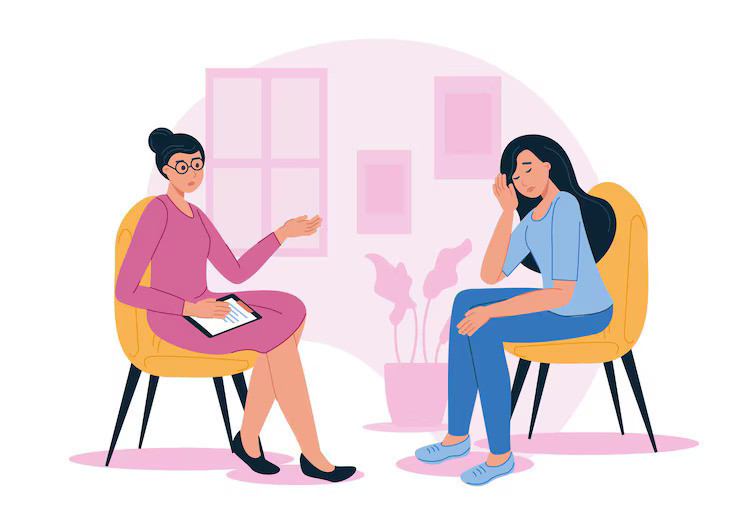views
How Play Therapy Supports Kids with ADHD?
A sizable portion of youngsters in India suffer from Attention-Deficit/Hyperactivity Disorder (ADHD), which affects millions of children globally. Characterized by persistent patterns of inattention, impulsivity, and hyperactivity, ADHD can interfere with a child's academic performance, relationships, and emotional well-being. While medications and behavioral interventions are commonly recommended, play therapy has emerged as a powerful therapeutic tool for helping children with ADHD express themselves, learn self-control, and navigate social interactions.
This article explores how play therapy supports children with ADHD and how families in India, especially in metropolitan areas like Delhi, can benefit from the services of trained psychologists offering ADHD therapy.
Understanding ADHD in Children
ADHD is a neurodevelopmental disorder that typically becomes evident in early childhood. Children with ADHD may:
-
Struggle to stay focused
-
Act impulsively without considering consequences
-
Exhibit excessive physical activity or restlessness
-
Have difficulty following instructions
-
Find it difficult to wait their turn or work with classmates.
These challenges often extend beyond school, affecting home life, friendships, and self-esteem. Since every child with ADHD presents differently, therapy must be customised to meet each child's needs, which is where play therapy excels.
What Is Play Therapy?
Play therapy is a form of counseling designed especially for children. It uses the natural language of play to help them express emotions, resolve conflicts, and develop coping mechanisms. Unlike traditional talk therapy, which may be challenging for young children due to their limited verbal and cognitive abilities, play therapy allows therapists to enter a child’s world on their terms.
Therapists might use toys, art materials, sand trays, puppets, games, and storytelling to observe and guide children through their emotional and behavioral struggles. For kids with ADHD, who often learn best through experience and action, play therapy can be incredibly effective.
How Play Therapy Helps Kids with ADHD
1. Improved Focus and Attention
It can be challenging for kids with ADHD to focus on things. Play therapy uses structured activities that gradually build attention span. For example, memory games, puzzles, or story sequencing tasks can improve sustained attention in a non-threatening and engaging way.
2. Impulse Control and Emotional Regulation
Impulsivity is a primary symptom of ADHD. Children learn to control their impulses and develop patience through role-playing or turn-taking activities. A psychologist might use scenarios where the child plays a character faced with choices, helping them learn to pause and consider consequences before acting.
3. Boosting Social Skills
Play therapy offers a safe environment to practice social interactions. Children with ADHD may struggle to pick up on social cues or wait their turn during group activities. In therapy, they can engage in guided social play, learning how to take turns, share, and empathize with others—skills critical for school and daily life.
4. Building Self-Esteem
Many children with ADHD experience criticism and rejection, which can affect their self-worth. Play therapy helps children feel heard and understood. When a therapist validates a child’s feelings and celebrates small successes during play, it builds confidence and a sense of accomplishment.
5. Parental Involvement
Parents or other carers are typically included in the healing process by play therapists. This collaboration helps families better understand ADHD behaviors and apply supportive strategies at home. Parents also learn how to respond more effectively to challenging behaviors without escalating conflict.
ADHD Therapy in Delhi: Where to Start
If you're a parent in Delhi concerned about your child’s hyperactivity, inattention, or behavior problems, seeking a psychologist who specializes in ADHD therapy is an important step. Delhi offers a growing network of mental health professionals, clinics, and child development centers that provide comprehensive ADHD assessments and treatment.
When choosing a psychologist in Delhi for ADHD therapy, look for:
-
Specialization in child psychology or developmental disorders
-
Training in play therapy or expressive arts therapy
-
Experience in working with ADHD cases
-
Involvement of parents and educators in the therapeutic plan
Prominent clinics in areas like South Delhi, Gurgaon, and Noida often offer multidisciplinary teams that include psychologists, occupational therapists, and special educators—all of whom can work together to support your child’s development.
Integrating Play Therapy with Broader ADHD Treatment
While play therapy is a powerful standalone approach, it is most effective when integrated with a broader ADHD management plan. This may include:
-
Behavioral therapy
-
Medication (if prescribed by a psychiatrist)
-
Occupational therapy (to improve motor coordination and sensory integration)
-
Parent training and support groups
-
Academic accommodations and special education support
The goal is to create a consistent, supportive environment that empowers the child at home, school, and in therapy.
Final Thoughts
ADHD presents daily challenges for both children and their families, but early intervention and the right therapeutic approach can make a profound difference. Play therapy meets children where they are—through play—and helps them grow into more focused, confident, and emotionally resilient individuals.
For families in Delhi, accessing ADHD therapy through qualified psychologists provides hope and direction. With growing awareness and availability of child-centered interventions like play therapy, there is every reason to be optimistic about your child's journey ahead.




Comments
0 comment